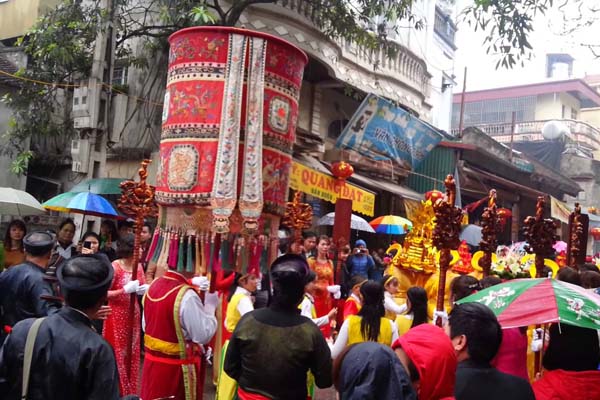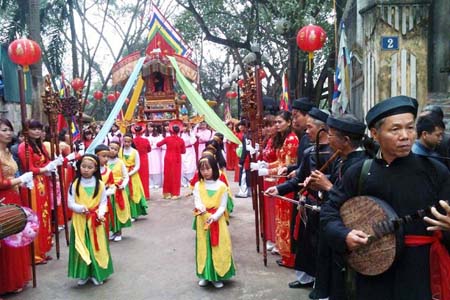The Festival is organized in Da Si village (Kien Hung, Ha Noi) in honor of the physician Hoang Don Hoa and his wife (16th century under the Le dynasty). It takes place every three years, on the 12th-15th days of the 1st lunar month. On the 12th day, after ceremonies of incense and sacrifices, a procession takes the palanquins of the husband and wife from the temple to the communal house. A unicorn dance leads the procession, which lasts from morning to evening and covers a distance of 500 meters. The Gentleman's palanquin carried by boys stops at the entrance of the temple to be preceded by the Madam's palanquin carried by girls. The tempo of the first palanquin is commanded by a beating drum and the second by the sound of a gong. On the 15th day of the 1st lunar month, the two palanquins rejoin the temple. Popular entertainment is comprised of a dragon dance, the ca tru song, classical theatre: drama (tuong) and traditional operetta (cheo).

Dong Da (Khuong Thuong village, Dong Da district, Hanoi) is the site of the glorious victory of King Quang Trung over the Chinese Qing (1789). The festival commemorating this victory takes place on the 5th day of the 1st lunar month. The ceremony of sacrifice occurs in the morning at Khuong Thuong communal house. At noon, a procession leads the hero's palanquin from the communal house to the temple on a hillock of Dong Da. At the same time on the anniversary of Dong Da battle, there is a ceremony of absolution for enemy soldiers killed in the fight. Among popular entertainment, the dragon dance reminds us of our troop's use of straw torches, which alludes to the dragon's undulating movement.



